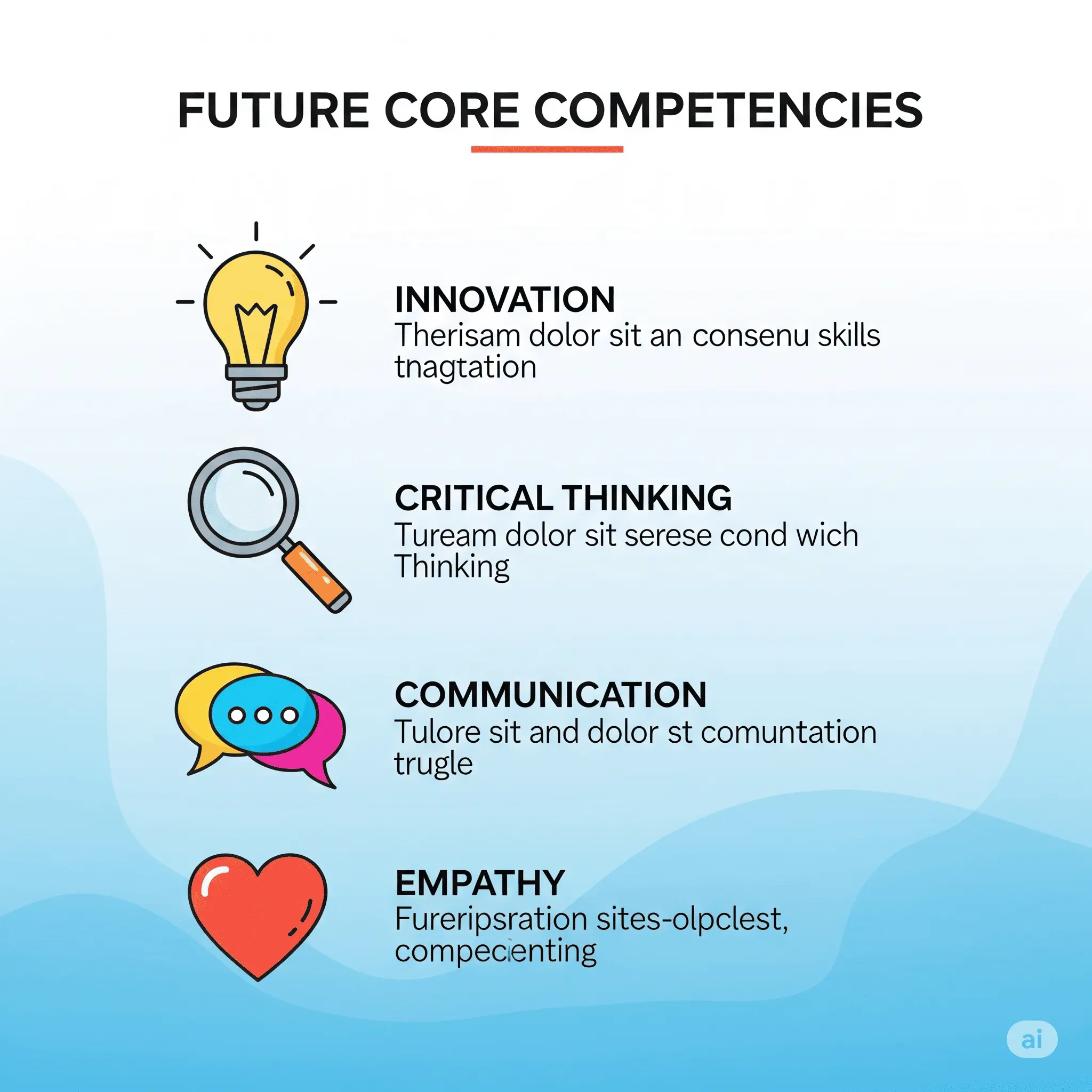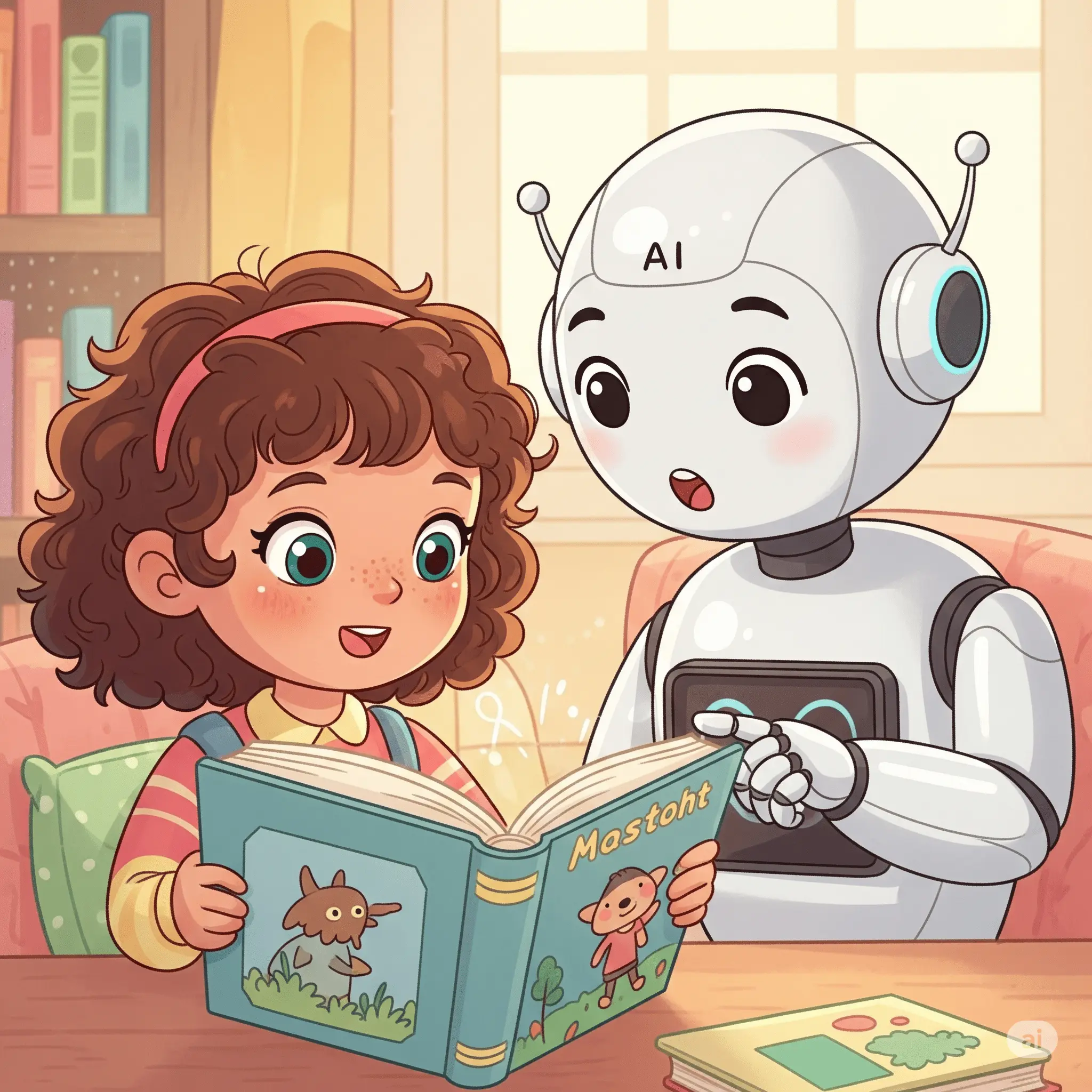"Mom, if I ask ChatGPT, my homework is done in 5 minutes. Why do I have to do it?" 😱 The day might come when you hear this from your child. Or maybe you already have. As artificial intelligence (AI) permeates every area of our lives, a vague sense of anxiety, 'What will become of my child's future?', grows in parents' hearts alongside excitement. This article is a guide for parents who want to raise not just 'a child who won't be replaced by AI,' but a 'future-ready individual who wisely uses AI as a tool.'
1. Why is AI Changing the Parenting Game?
Education in the past industrial age valued the ability to quickly and accurately memorize given knowledge. But now, the undisputed king of 'knowledge memorization' is AI. AI remembers more, faster, and more accurately than we do. This fact means our educational paradigm must fundamentally shift. What's important now is not 'what you know,' but 'how you use what you know to create new value.' AI isn't a threat; it can be the most powerful learning tool in history. Just as calculators assist mathematical thinking, AI will become a partner that expands our creative and critical thinking.
"The most important skills in the age of AI are, paradoxically, the most human ones. AI cannot empathize, make ethical judgments, or imagine something entirely new." – Futurist, Thomas Frey
2. The 'Un-robot-able' Skills: What Your Child Really Needs
In a future where AI can do many things, 'humanity'—which machines cannot easily replicate—will become even more crucial for our children. It's time to teach the depth of thought rather than the amount of knowledge, and the right direction rather than speed. The core competencies required by future society are as follows.

| Core Skill | Why It's Essential |
|---|---|
| Creativity & Imagination | AI operates based on existing data, but humans create new things from scratch and produce art. |
| Critical Thinking & Problem-Solving | It is the human's role to judge whether the information provided by AI is true or biased and to find the optimal solution to complex problems. |
| Communication & Collaboration | The ability to understand and empathize with others' feelings and work together toward a common goal is a powerful strength that AI cannot imitate. |
| Digital Literacy & AI Ethics | This is the ability to use AI safely and responsibly, discern the authenticity of AI-generated content, and recognize ethical issues. |
| Adaptability & Resilience | A flexible mindset to adapt to a rapidly changing world and to see failure not as something to fear but as a learning opportunity is crucial. |
3. A Practical Parenting Playbook for the AI Age
So, how can we cultivate these skills? Instead of grand plans, here are small, practical tips you can try with your child starting today.
Tip 1: Teach 'Good Questions' Instead of Answers
In the age of AI, a capable person is not someone 'who knows the answer' but someone 'who asks good questions to find the answer.' When your child asks, "What's this?", instead of giving a direct answer, try to delve deeper into their curiosity by asking, "Why did you become curious about that?" or "What do you think it looks like?". Crafting questions together, like "What should we ask ChatGPT?", is also excellent practice.
- Tip 2: Play and learn together in the 'digital playground'. Instead of fearing and banning AI, why not explore it together within safe guidelines? You can naturally teach the possibilities and limitations of AI by drawing pictures or creating stories with it. This process can foster critical thinking through conversations like, "Why does the picture drawn by AI look a bit awkward?".
- Tip 3: Let them experience with their bodies and feel with their hearts. Time spent touching soil, arguing and making up with friends, and laughing and crying together is just as important as screen time. Analog experiences like building with LEGOs, painting, and running on the playground cultivate creativity and social skills that AI can never provide.
- Tip 4: Parents are the best role models. If you can't put down your smartphone during dinner, telling your child to 'reduce screen time' will lack credibility. The most effective education is to first model healthy tech habits and show that you are willing to discuss the ethical issues of technology together.
# A simple Python conversation game to play with your child
import random
questions = [
"If you could be invisible, what's the first thing you would do?",
"If you could talk to animals, which animal would you want to befriend?",
"If you built your own secret base, where would you build it?",
"If you had a flying car, where would you travel to?"
]
def conversation_starter(name):
question = random.choice(questions)
print(f"Hello, {name}! I just got curious about something.")
print(question)
# Try running it with your child's name!
conversation_starter("Wise Explorer")
Simple coding games like this can show children that technology can be a fun tool for expressing logical thinking and creativity.
4. Conclusion: We Are Raising Humans, Not Humanoids
The core of parenting in the age of AI is not about teaching 'how to beat AI.' It's about showing 'how to grow into a better human being with AI.' No matter how fast technology advances, uniquely human values like warm empathy, quirky imagination, and courage for what is right will not change. Instead of impatience and anxiety, we encourage you to become wonderful parents who grow together with your child, based on trust and love. Your child's future is brighter than you think. ❤️
